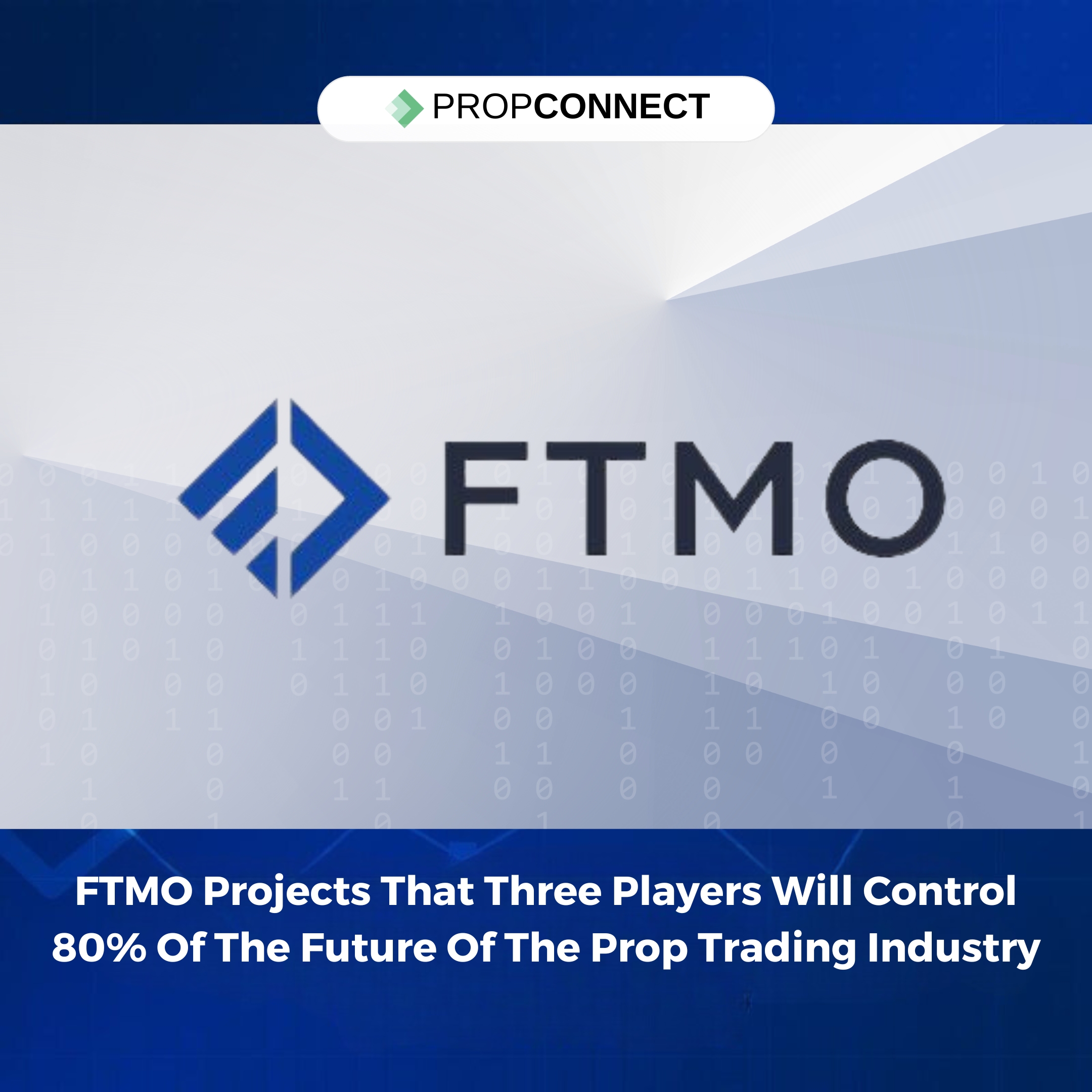Articles
FTMO Projects That Three Players Will Control 80% Of The Future Of The Prop Trading Industry
The core idea was always that trading was the key issue, and the goal was to make a living through trading.

Prop trading is a highly consolidating industry; it is predicted that in the future, a small number of top companies will control 80% of the market. FTMO's founders, who started their prop trading business ten years ago in a dorm room at the university, participated in a panel discussion about industry developments. The conversation is crucial since, in 2023, the proprietary trading industry suffered from a lack of credibility, primarily as a result of scandals surrounding it, especially in the USA.
Initiating FTMO, originally known as Czech Prop Trading, in 2013 were Chief Technology Officer Marek Vasicek and Chief Executive Officer Otakar Suffner while enrolled in a Prague university. They came up with the concept of starting a proprietary trading company to provide experienced traders with trading capital because they were unable to make significant returns from their profitable trades with small accounts. "Trading was always our main priority. Our goal was to become full-time traders. That was the idea," Vasicek said.
FTMO went through a five-year self-funding phase prior to becoming a significant player in the business. But as it became well-known, the business began to grow quickly, hiring 200 people by 2022, up from 100 in 2020. The previous year, FTMO expanded its line of business by purchasing Quant Lane, another private trading company based in the Czech Republic.
Suffner stated, "I would contend that the most difficult time was from 2013 to 2017, primarily because we weren't receiving pay throughout that time. It was difficult to defend our conduct to other people and persuade them of their logic, even though it appeared to be failing.
According to separate research that is not connected to the panel, proprietary trading firms operate worldwide, mostly serving the American and British markets. In addition, the November issue of the Acuiti Proprietary Trading Management Insight Report predicted a significant increase in the activities of businesses in this industry by 2024.
Roughly 45 percent of FX trading companies plan to significantly expand their involvement in the asset class, with an emphasis on stock options. On the other hand, cash equities are becoming less appealing, particularly in Europe, where a significant number of proprietary firms intend to reduce their exposure.
The unsolved problem that still hangs over us is the controversy surrounding the US proprietary trading industry, particularly the widely reported episode involving My Forex Funds.
The problems began around the end of the year, when the Ontario Securities Commission (OSC) in Canada and the Commodity Futures Trading Commission (CFTC) in the United States filed lawsuits against two businesses that operated My Forex Funds and their owner in September. The $310 million in commissions that 135,000 clients received are at issue in this case.
The CFTC and OSC filed accusations against Murtuza Kazmi, who managed My Forex Funds through his two companies, Traders Global Group Inc., which was domiciled in Canada, and Traders Global Group Inc., which was registered in New Jersey. While the Canadian regulator is solely focusing on Kazmi and the Canadian company, the CFTC included both companies in its action.
My Forex Funds, a proprietary trading platform, responded to the US commodities regulator's case with its first formal statement. The accusations were described as a "grossly inaccurate and incomplete representation of the facts" by the platform.
According to Suffner, prop trading will achieve a state of equilibrium in the future when two or three dominant companies will hold the majority of the market share. He thinks FTMO has what it takes to be among these elite companies. According to his prediction, the industry would eventually consolidate and two or three dominant businesses would emerge, controlling 70–80% of the market.
Vasicek and Suffner also mentioned the need for regulations in prop trading in order to preserve a high standard of integrity and openness. They don't know all the specifics, but they expect that eventually regulatory bodies will step in because of how quickly prop trading is growing. In the interim, FTMO is attempting to build credibility by providing traders with free access to trading data, challenge accounts, and performance coaching.
Vasicek made the observation that the distinctive structure of prop trading companies may limit regulatory oversight. "We are not teaching anyone trading tactics," he added. We only provide a window of time for you to implement your own plan.
With ten years of experience in the field and the continued leadership of its original founders, FTMO has the know-how and perseverance to continue leading the way in prop trading. Its main goal is to serve traders better by enhancing offerings like the FTMO Academy, its teaching platform.

